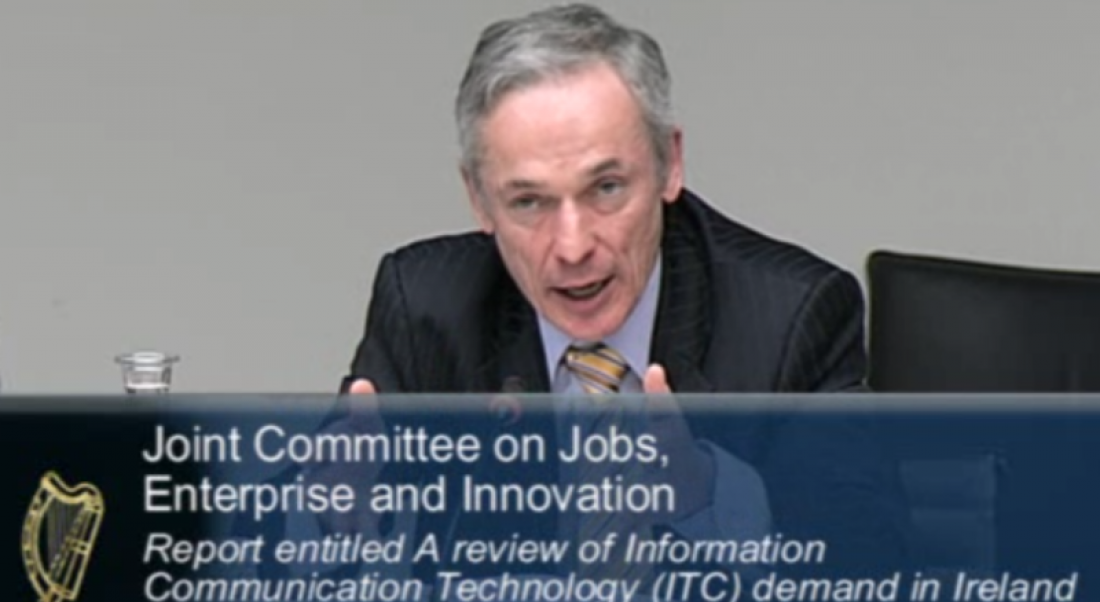Work is under way between the Department of Justice and the Department of Jobs, Enterprise and Innovation to develop an IT visa for Ireland that meets the needs of indigenous and multinational employers who are seeking highly skilled workers from overseas, in the global race for the best talent.
Addressing the Oireachtas Committee on Jobs, Enterprise and Innovation, which met to discuss a perceived mismatch between the ICT industry’s skill needs and what Ireland’s third-level sector is actually producing, Minister for Jobs, Enterprise and Innovation Richard Bruton, TD, said he was responding to matters raised by indigenous and multinational businesses in Ireland and their corresponding agencies Enterprise Ireland and IDA Ireland.
Last month, the committee led by Damien English, TD, published a report reviewing ICT skills demand in Ireland that revealed 75pc of ICT companies are looking for workers and there are currently 4,500 vacancies – a startling fact during a time of high unemployment.
The report’s authors said ICT is an enormous opportunity for Ireland and therefore we need to ensure graduates coming out of third level have the right skills. It pointed out that there are 400,000 vacancies for ICT and science jobs in Germany and therefore it is vital Ireland acts to address the problem or risk losing out.
One of the reasons students weren’t pursuing such obvious opportunities, the report revealed, was a massive information gap in relation to careers in the tech sector – schools simply aren’t telling the students about these opportunities. Other actions suggested include finally getting to grips with teaching ICT in schools and boosting numeracy and literacy levels in Irish schools.
Attracting highly skilled IT workers to live in Ireland
While these issues may take some time to resolve, a more pressing need is to attract highly skilled technology workers from abroad and one of the proposals was to develop a technology visa to allow workers from overseas to fill the available jobs and allow indigenous companies to grow and expand at the same time.
Bruton confirmed his department is exploring the merits of such a scheme.
A key stumbling block has been the level of bureaucracy that has stifled the ability of indigenous and multinationals to attract workers to Ireland even if they have already secured a job with an employer.
One of the suggestions has been the creation of a kind of IT visa that would allow the foreign skilled workers to come to Ireland first and identify the companies they would like to work for.
“We are in discussions with the Department of Justice to look at how we can facilitate the hiring of overseas workers and let highly skilled candidates find work in Ireland in advance of securing a visa.
“We have to be careful that it is not open to abuse and we have to give it careful consideration before we sign off on it.
“There is a fear that someone may come in and present themselves as an IT specialist but end up placed in a sector that has nothing to do with their speciality.
“This [the ICT sector] is a sector of immense opportunity for us and it has been rightly identified as an area where we need to build human capital and supplement that by visas or work permits where appropriate.
“That’s the policy and we are adopting the two approaches simultaneously,” Bruton said.
Watch out for Silicon Republic’s Future Jobs Forum which takes place in the Convention Centre, Dublin on Friday, February 8 and which will gather Ireland’s leaders in the ‘knowledge economy’ to look at constructive solutions as we race to win the battle for global talent. Event site goes live in coming days.




